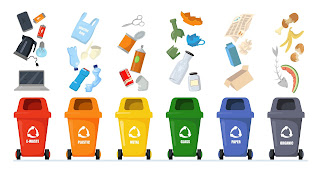Emerging Waste Management Industry Trends Shaping a Sustainable Future
The waste management industry is undergoing a significant transformation as it adapts to global challenges, technological innovations, and shifting environmental regulations. With the pressing need for sustainable practices, waste management companies are adopting new strategies to minimize waste and reduce their environmental impact. Let’s explore some of the key trends driving the industry forward in 2024.
1. The Rise of Circular Economy Practices
One of the most impactful trends in the waste management industry is the shift towards a circular economy. Unlike the traditional linear model of "take, make, and dispose," the circular economy focuses on reducing waste through reuse, recycling, and repurposing. Businesses are now designing products with longevity and recyclability in mind, which reduces landfill waste and promotes resource efficiency.
Waste management companies are also partnering with manufacturers to close the loop on waste materials, turning them into valuable resources instead of discarding them. This trend is not only reducing environmental impact but also generating new revenue streams for businesses.
2. Technological Innovations and Smart Waste Management
Technology is revolutionizing how waste is collected, processed, and managed. Smart waste management systems, powered by the Internet of Things (IoT), use sensors to monitor waste levels in bins and optimize collection routes. This reduces operational costs, fuel consumption, and carbon emissions.
Additionally, artificial intelligence (AI) and machine learning are being used to sort recyclable materials more efficiently at recycling facilities. These technologies improve accuracy and speed, making recycling operations more effective. Robotics is another area of innovation, with automated systems handling hazardous waste, ensuring worker safety.
3. Increased Focus on Waste-to-Energy (WTE) Solutions
Waste-to-energy (WTE) technology is gaining momentum as a viable solution to manage non-recyclable waste while generating renewable energy. Advanced incineration and gasification processes convert waste into electricity and heat, reducing landfill use and providing a sustainable energy source.
Countries across Europe and Asia have already embraced WTE, and the trend is expanding globally. As governments and businesses seek to meet renewable energy targets, WTE solutions are becoming a critical component of waste management strategies.
4. Stringent Environmental Regulations
Governments worldwide are implementing stricter regulations to reduce waste generation and promote recycling. For instance, single-use plastics bans, landfill taxes, and extended producer responsibility (EPR) programs are driving companies to adopt more sustainable practices.
These regulations are encouraging innovation in waste management, with businesses investing in eco-friendly packaging, biodegradable materials, and sustainable waste disposal methods. Companies that fail to comply risk facing penalties and reputational damage, making regulatory adherence a top priority.
5. Consumer Awareness and Demand for Sustainability
Consumers are becoming more environmentally conscious and demanding sustainable practices from businesses. This shift in consumer behavior is influencing companies to prioritize waste reduction and transparent waste management strategies.
Brands that adopt sustainable waste management practices and communicate their efforts to customers are gaining a competitive edge. Certifications, eco-labels, and sustainability reports are becoming essential tools for building consumer trust and loyalty.
Conclusion
The waste management industry trends are evolving rapidly, driven by technological advancements, regulatory changes, and increasing consumer demand for sustainability. Companies that embrace these trends and invest in innovative waste management solutions will be well-positioned for success in the future. By adopting circular economy practices, leveraging smart technologies, and prioritizing waste-to-energy solutions, the industry can play a critical role in creating a more sustainable world.



Comments
Post a Comment